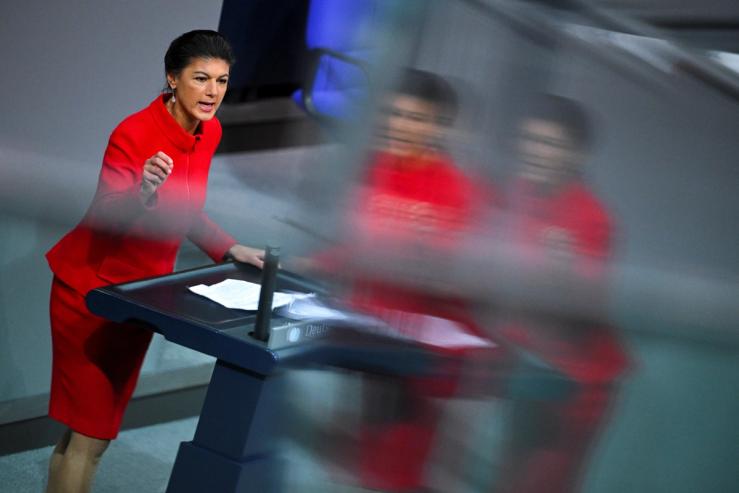The News
Polarization has gripped the world. The right is moving right, the left is moving left, and the center is getting squeezed. Or so it might seem: Lately, there are examples around the world of movements that were once considered part of the left moving toward the right as well.
In 2024, a coterie of former Democrats joined up with Trump, forming a strange coalition on the basis of anti-establishment sentiment and rejecting progressive mores. For Director of National Intelligence nominee Tulsi Gabbard, a former DNC vice chair and Bernie Sanders surrogate, Trump represents an isolationist Republicanism in line with her foreign policy worldview. She has been sharply criticized by leaders in both parties as too Russia-friendly and too tolerant towards figures like Syrian dictator Bashar Al-Assad. Gabbard is also a social conservative on certain issues, putting her out of step with the Democrats’ liberalism.
RFK Jr., the controversial presidential candidate and “enfant terrible” of the Kennedy family, was anti-Trump as recently as this year. Kennedy ran his campaign on policies aimed at overhauling government, often targeting large corporations and their influence over public policy. But Kennedy is also a noted conspiracy theorist, who believes that everything from wi-fi to vaccines are poisonous, often in conflict with the scientific consensus.
The clusterbomb of positions — some conventionally left, some right, some fringe — has scrambled traditional political lines. Colorado governor Jared Polis, a Democrat, issued a qualified statement of support for RFK and drew instant backlash from members of his party. On the right, anti-abortion Republicans are uneasy with Kennedy’s support for reproductive rights, among other issues.
But it’s not just in the US that this is occurring. Sahra Wagenknecht, a former leader of Germany’s “Die Linke” party, left over disagreements with social policy. Wagenknecht founded her own party, named after herself, taking aim at a host of left-wing stances: namely, on climate and immigration.
The party, BSW, has seen its best results in East Germany, where it managed to enter state parliaments across the board in this year’s state elections. It seems likely to make it into national parliament next year as well, though one recent survey indicated some struggles.
BSW has been placed in a tradition of “Old Left” parties that retain the social conservatism of the Soviet era. Communist and social democratic parties across Europe fall into this vein, like the Communist Party of Greece, which has campaigned against same-sex marriage in the country.
In France, Communist leader Fabien Roussel emphasized protection of France’s unique gastronomy during his campaign, propounding that the French working class should have cheap access to steak and cheese.
Latin America has a similar tradition of unorthodox leftists. Peru’s last presidential winner, Pedro Castillo, aligned himself with the far-left “Peru Libre” party, campaigning for better conditions for peasants and teachers. But he was also noted for his social conservatism, reflective of many of Peru’s rural and Indigenous communities.
In Mexico, President Andrés Manuel López Obrador ran a progressive campaign against a conservative political establishment. But AMLO himself has conservative tendencies, and notably clashed with the former mayor of Mexico City on masking during the Covid crisis. That former mayor was his ally, Claudia Sheinbaum, now Mexico’s president.
In this article:
Brad’s view
While a “left-wing conservatism” may seem unusual in the context of standard political analysis, there are some clear explanations.
Some voters who would have once backed typical left-wing parties may find themselves alienated by their trend towards social progressivism in recent years. Leaders of these movements have identified what they have labeled “woke” social and economic politics as a source of their frustration, which are often derided as products of academics and elites.
Many of these parties also offer an anti-establishment appeal similar to that invoked by right-wing nationalist movements. Candidates like Wagenknecht are leveraging social media to reach a slice of the disaffected in conservative spaces.
Gen X and older millennials may be prime targets for this strand of politics given their adoption of social media and memories of “alternative” rebellion, alongside a lack of upbringing with recent progressive shifts.
Notable
- Peru’s “ethnocacerist” movement blends Marxist social and economic theory with Indigenous ultranationalism.


